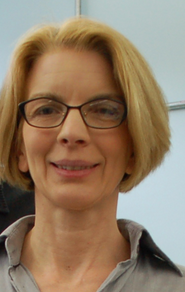
FARMINGTON – The University of Maine at Farmington has just been named by the Howard Hughes Medical Institute as an associate member in its nationwide SEA-PHAGES project—a pilot research program designed to engage college students in real scientific research and discovery as early as possible in their academic careers.
The SEA-PHAGES project (Science Education Alliance Phage Hunters Advancing Genomics and Evolutionary Science) was built around a national experiment in bacteriophages, a commonly occurring virus that infects bacteria. Beginning in fall of 2016, a select group of first year UMF science students will have the opportunity to take the two-semester phage genomics course instead of the traditional pathway, which focuses on plant and animal biology.
Students in the first semester of the SEA-PHAGES project, will isolate, name and characterize their bacteriophages, extract DNA and select a specimen for whole genome sequencing. In the second semester, students will analyze the genome sequence using special computer software and participate in the nation-wide study by submitting their findings to the National Center for Biotechnology Information GenBank database.
Throughout the pilot program, HHMI will provide participating institutions with all necessary curriculum, materials, host cell organisms, computer software, training and support.
“This program is based on experiential learning, where first year science students participate in relevant and important research, something usually reserved for upper level students,” said Jean Doty, UMF professor of biology. “Students in the program will not only receive a great educational foundation and valuable lab experience, but also contribute to an important national scientific body of knowledge aimed at understanding complex biological systems.”
The Science Education Alliance (SEA) works with science educators at colleges and universities across the country on pilot projects designed to advance science education on a national scale. The goal of the organization is to help form connections among individuals and institutions so they can turn good ideas into effective programs.
The SEA-PHAGES community has reached over 70 campuses since 2008 and has offered more than 4,800 undergraduates a research experience in a laboratory class. The project is led by HHMI Professor Graham Hatfull at the University of Pittsburgh and by members of its Undergraduate and Graduate Programs group.




